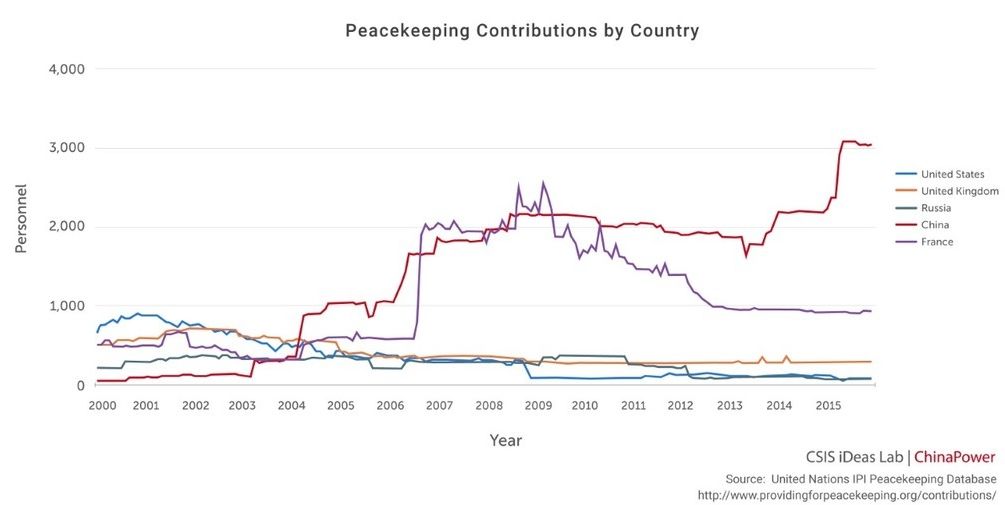5 Common Myths about China's Power
Beijing’s no supervillain.
Recognition of the yuan’s international standing came in November 2015 when the International Monetary Fund entered the yuan into its basket of Special Drawing Rights currencies, which determines the mix of currencies countries receive when the IMF disburses funds. China’s inclusion offers considerable benefits to the global economy, as it requires the People's Bank of China to provide greater transparency on how the yuan is managed. However, the internationalization of the yuan faces considerable challenges. In order to strengthen the yuan for China’s domestic market, Chinese leaders have taken steps to open the country’s capital account, but doing so puts downward pressure on the yuan’s value.
Rather than criticizing China for its monetary policy, the international community should encourage China to further reduce existing barriers to trade and investment. China’s underdeveloped intellectual-property-rights regime and favoritism toward domestic companies pose serious challenges to fair and competitive international trade, and ultimately do more damage than a controlled currency.
Myth #5: China doesn’t participate in global governance.
Multilateral cooperation on global issues provides Beijing with opportunities to demonstrate China’s commitment to international peace and stability. Historically, China has been resistant to interventionist actions, especially United Nations resolutions that potentially compromise state sovereignty, but times are changing.
One of the clearest examples of China’s increasing commitment to global governance can be seen through its participation in the United Nations. In recent decades, China has progressed from being a nonparticipant, to a hesitant supporter, to an active leader within the United Nations. China is now the third-largest contributor to the UN’s regular budget, the second-largest contributor to the peacekeeping budget and has committed over three thousand personnel to UN peacekeeping operations.
China’s changing role within the United Nations is also evidenced by its evolving position on sanctions against North Korea. After decades of watering down resolutions to suit its interests, China supported some of the harshest sanctions enacted in decades against North Korea in February 2016 after the much-criticized nuclear test.
China also supports global governance through its economic strength and largesse. Beijing is currently the largest provider of financing for developing countries, which includes support through the China Development Bank, the China Export-Import Bank, the New Development Bank (established by the BRICS) and the Asian Investment and Infrastructure Bank. Its increased global financial power has likewise empowered China to become active in the G-20, World Bank and International Monetary Fund.
Additionally, Beijing has signed various multilateral treaties that ensure Chinese support for critical global initiatives, such as the 2015 Paris climate agreement. Yet, it cannot be said that China universally supports a rules-based international order. China’s position on the Permanent Court at The Hague’s arbitration of conflicting claims in the South China Sea demonstrates that China, like all states, must balance its own interests with those of the international community. China rejects the jurisdiction of the arbitral tribunal, and has chosen to interpret the United Nations Convention on the Law of the Sea to suit its needs and concerns. Nevertheless, China’s recent record shows an increased commitment to multilateral cooperation than has been witnessed in previous decades.
Bonnie S. Glaser is a senior adviser for Asia and the director of the China Power Project at the Center for Strategic and International Studies. Matthew P. Funaiole is a fellow with the China Power Project at CSIS. His research focuses on power relationships and alliance structures in the Asia-Pacific.
Image: Wikimedia Commons/U.S. Air Force.


